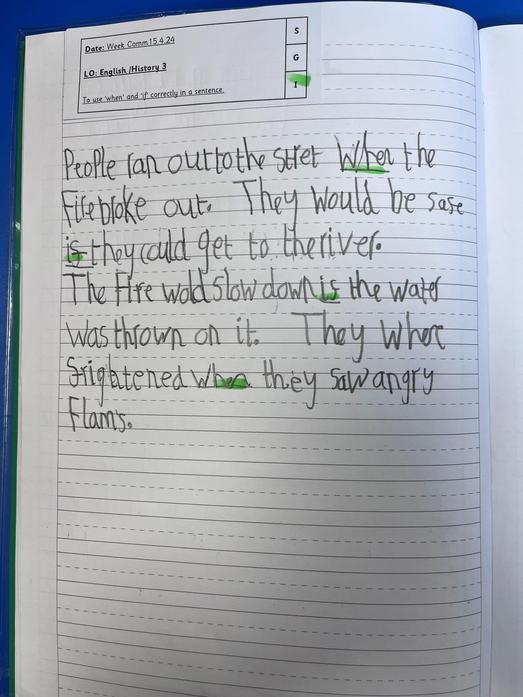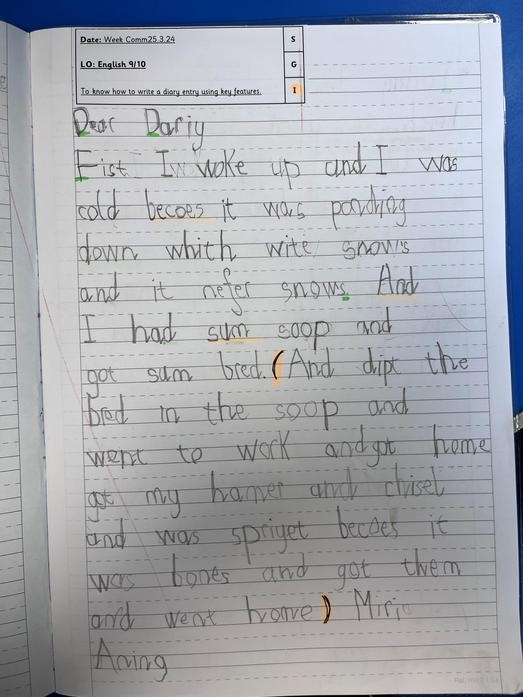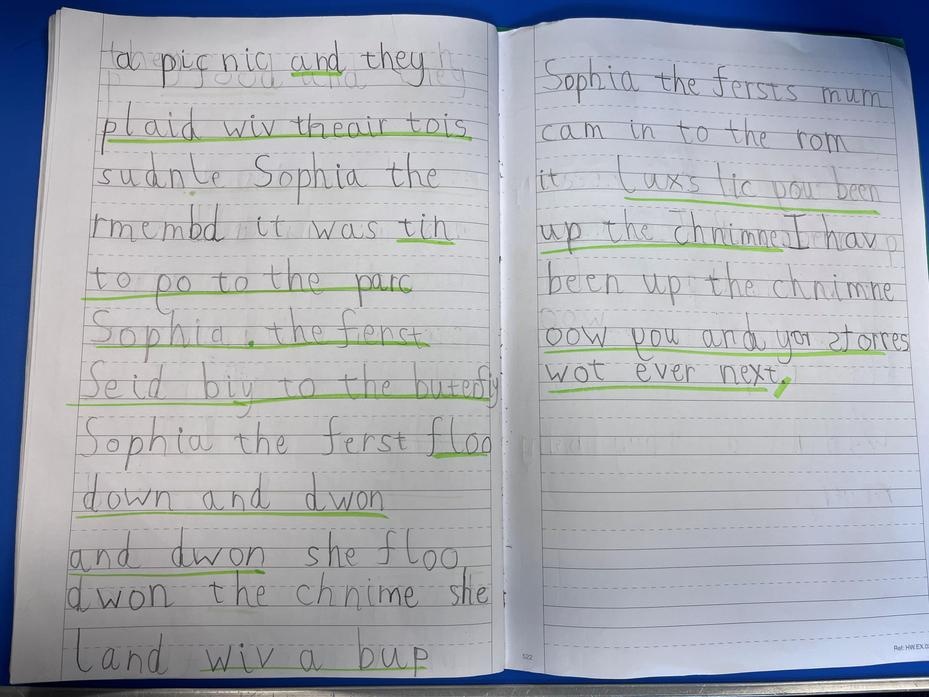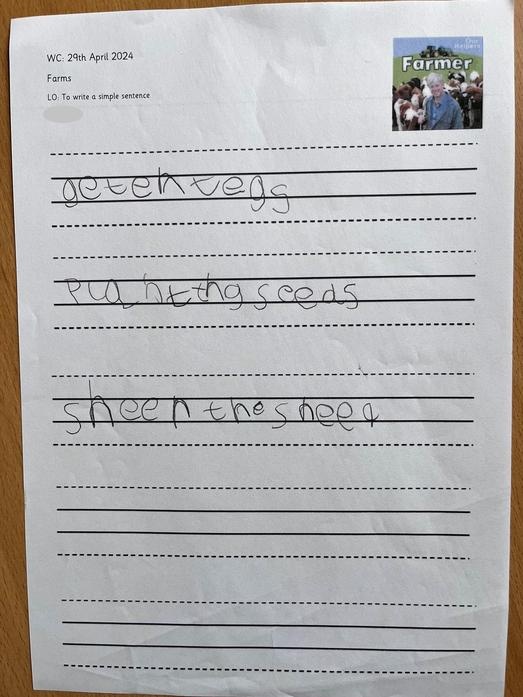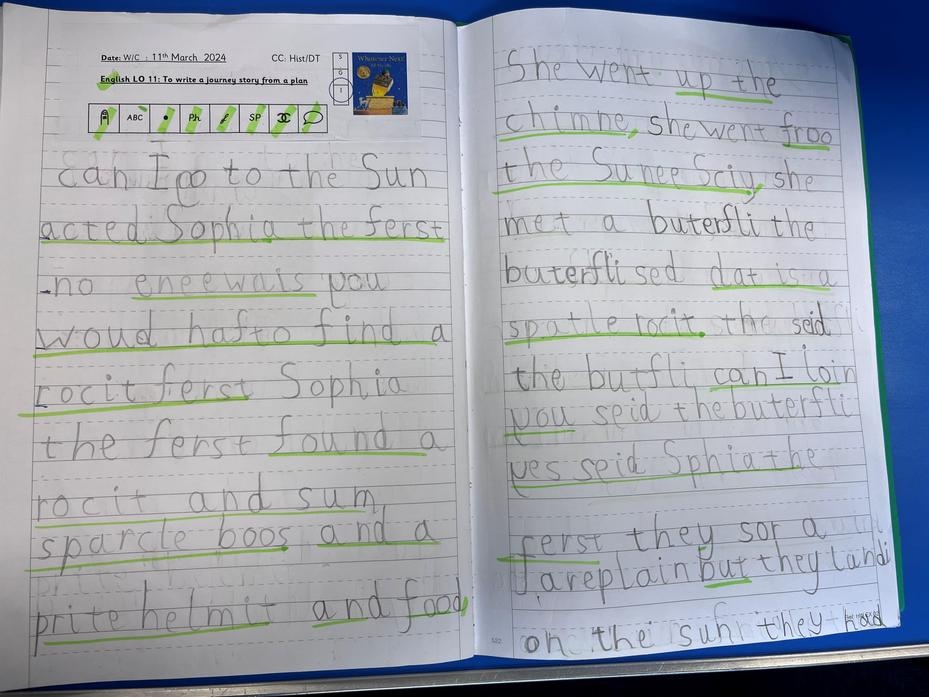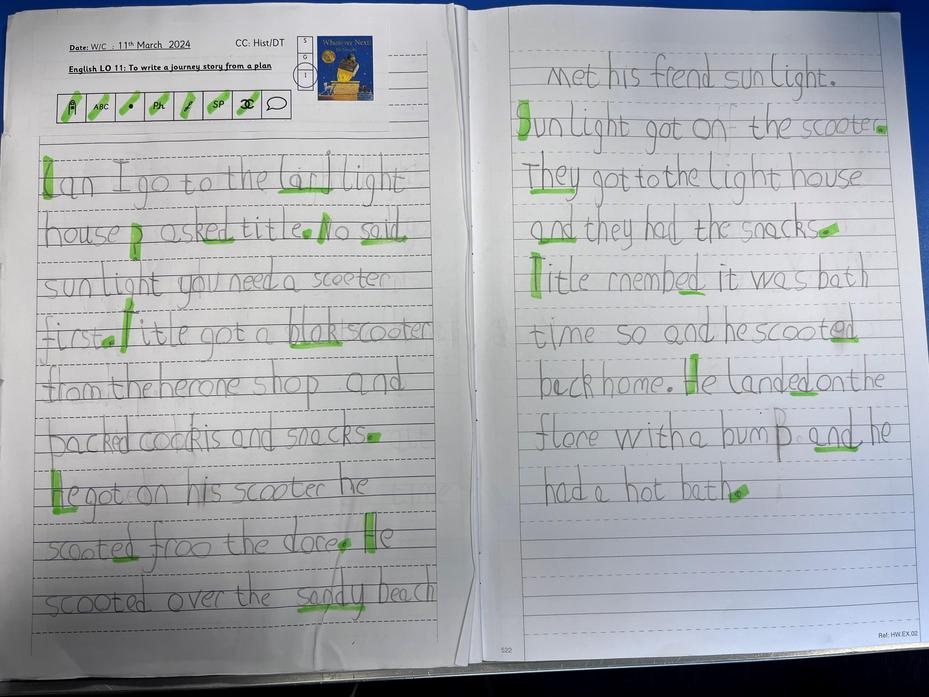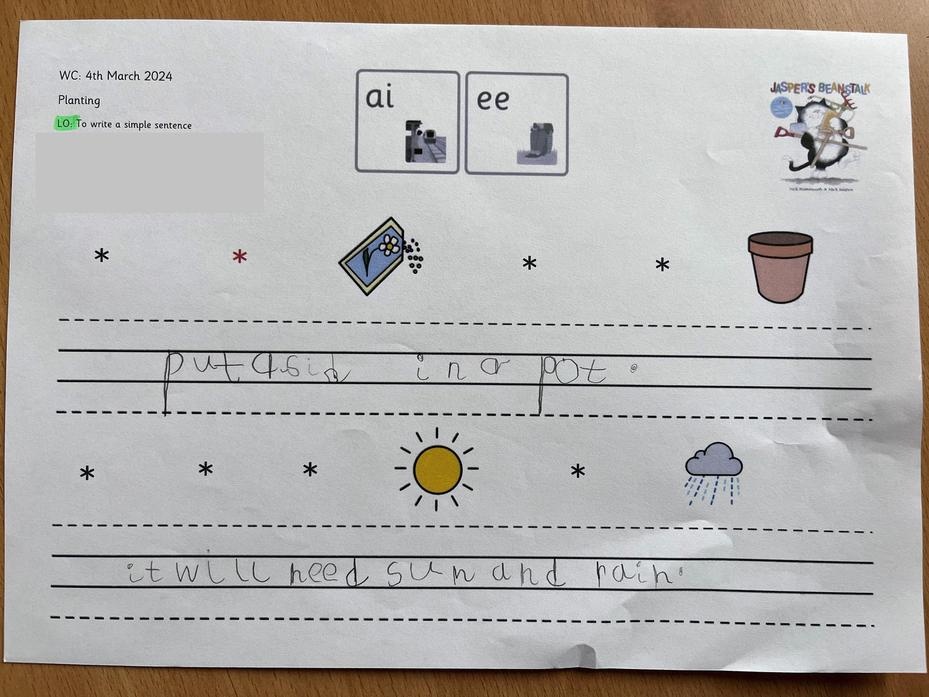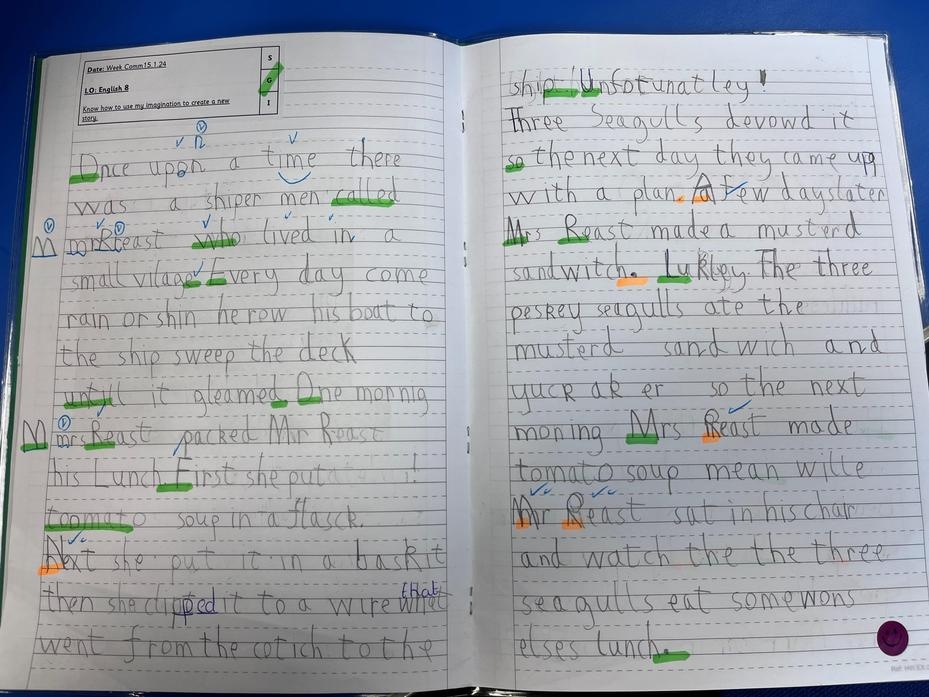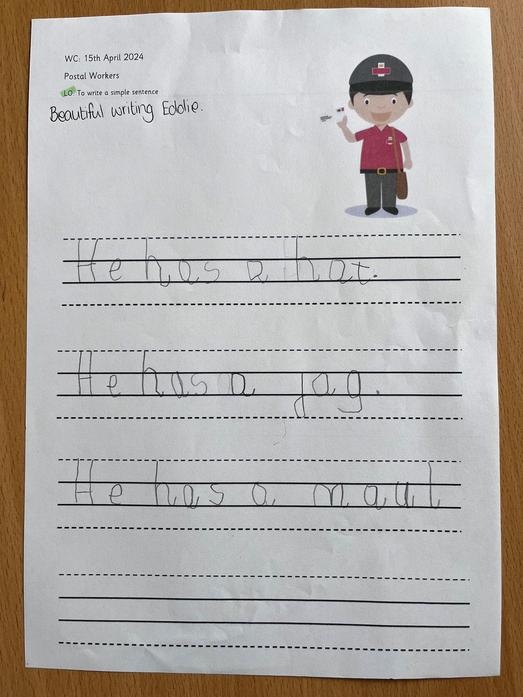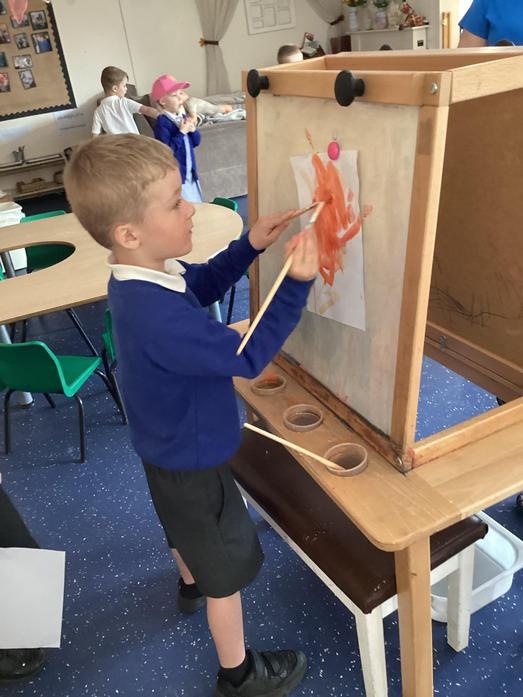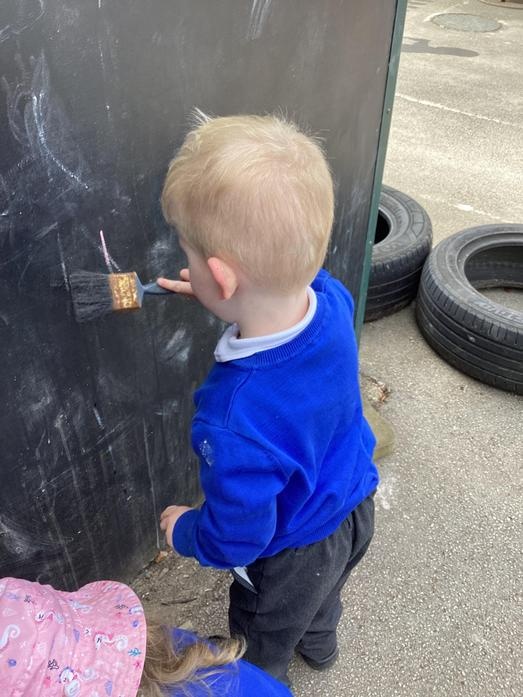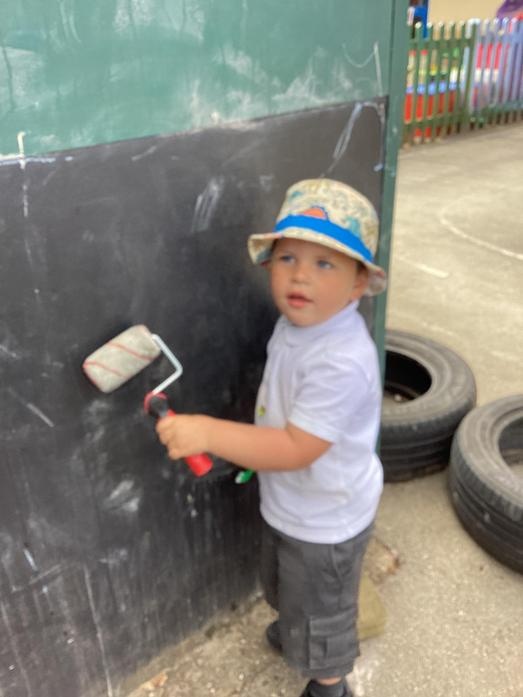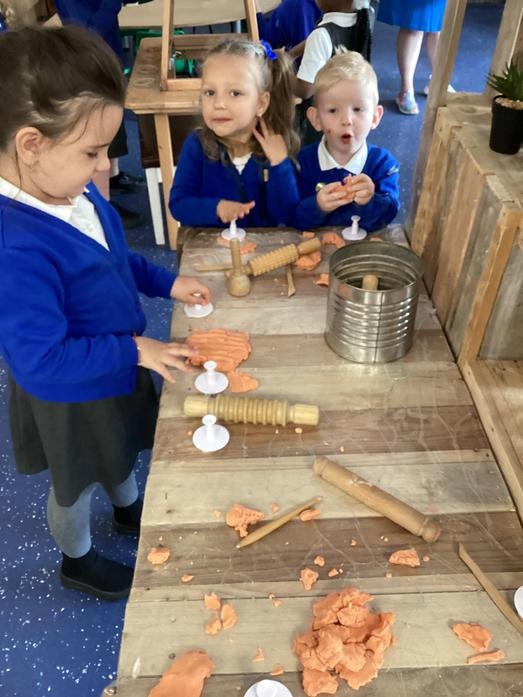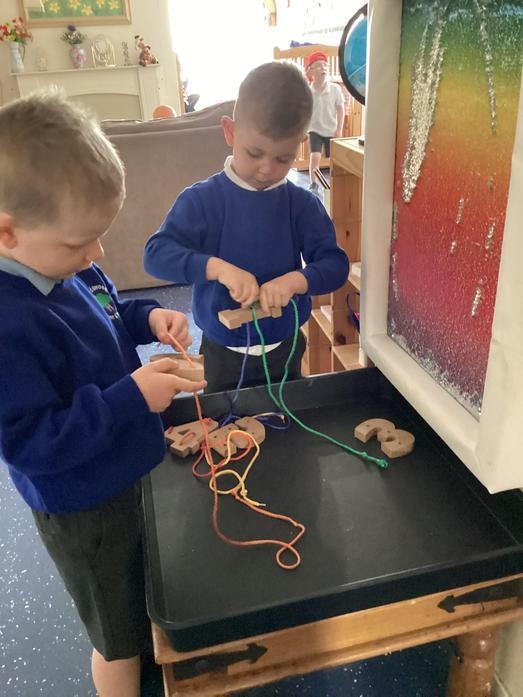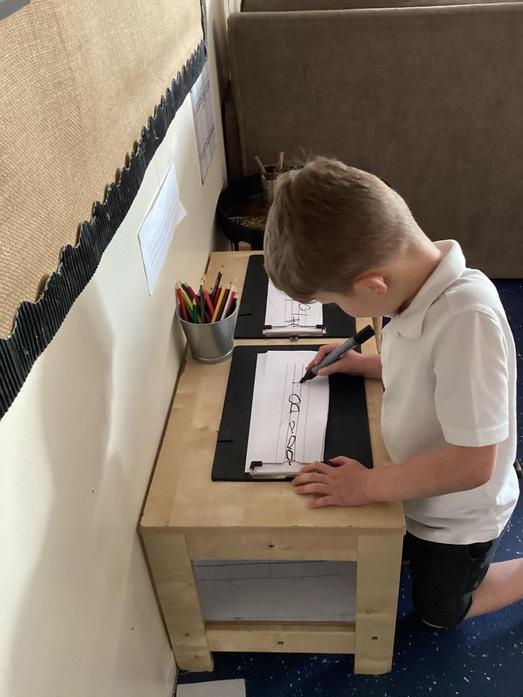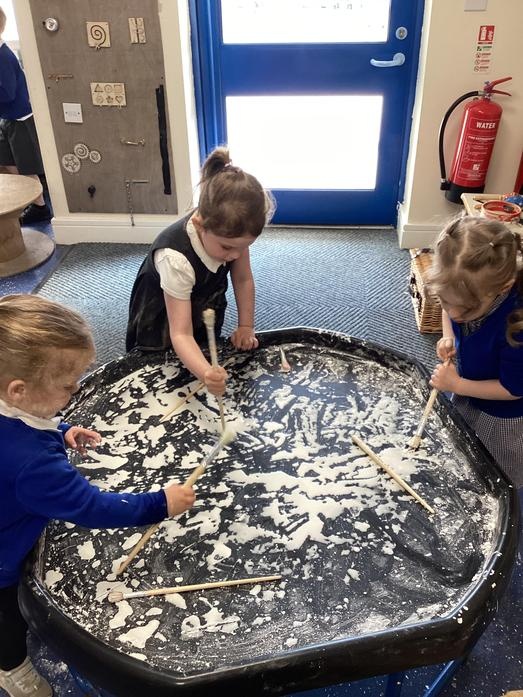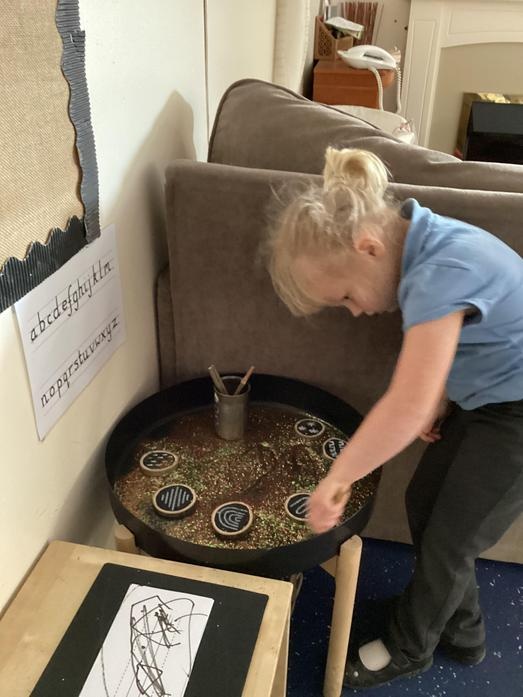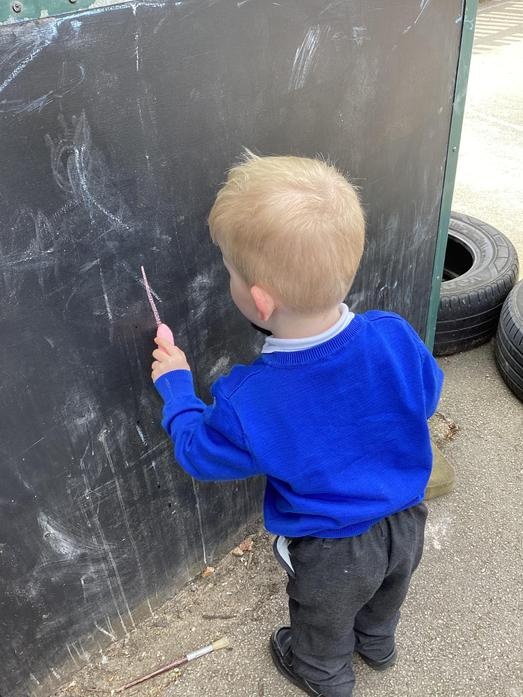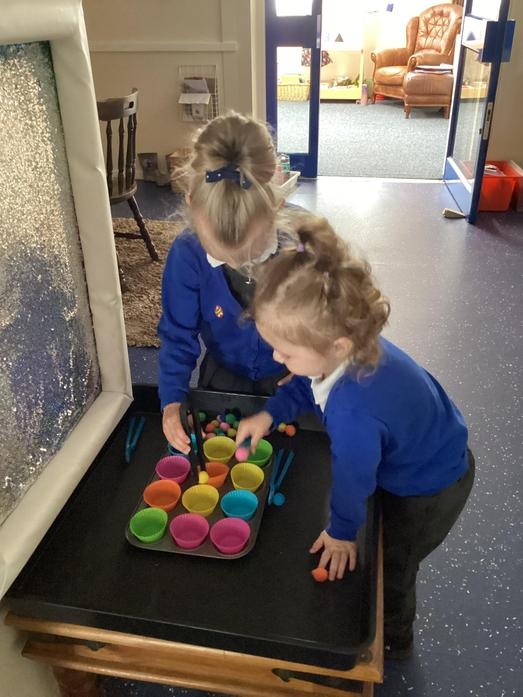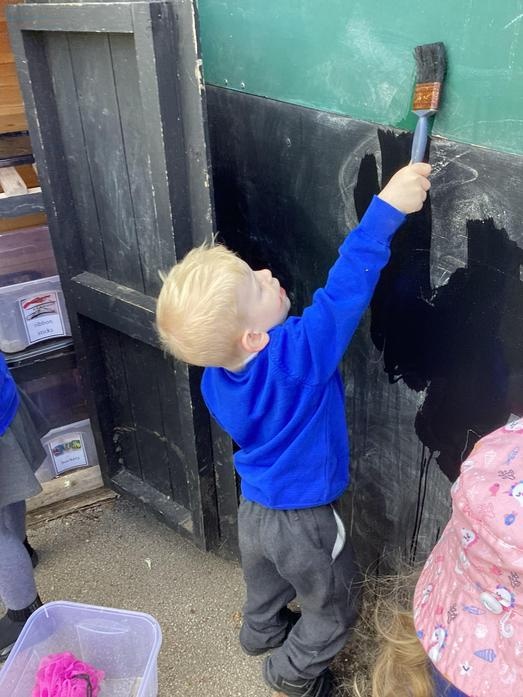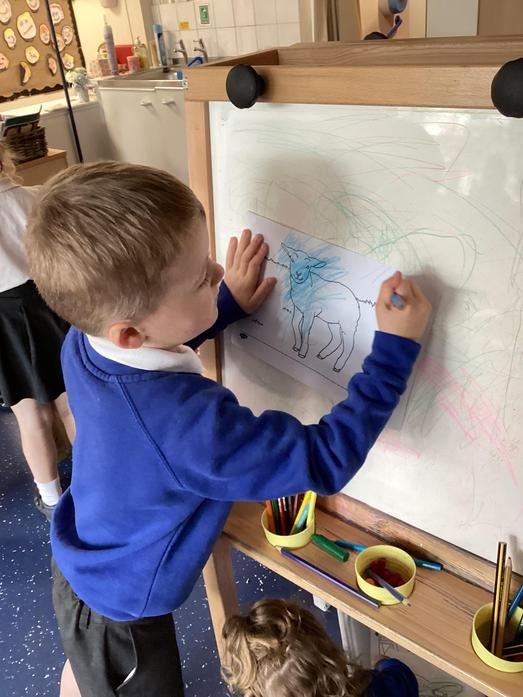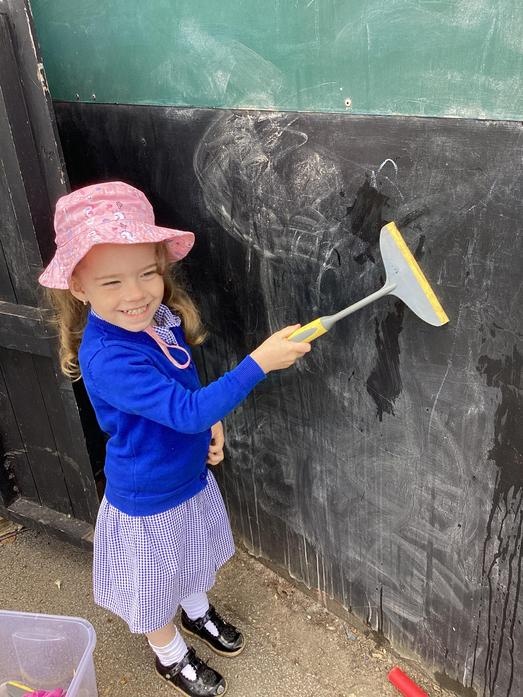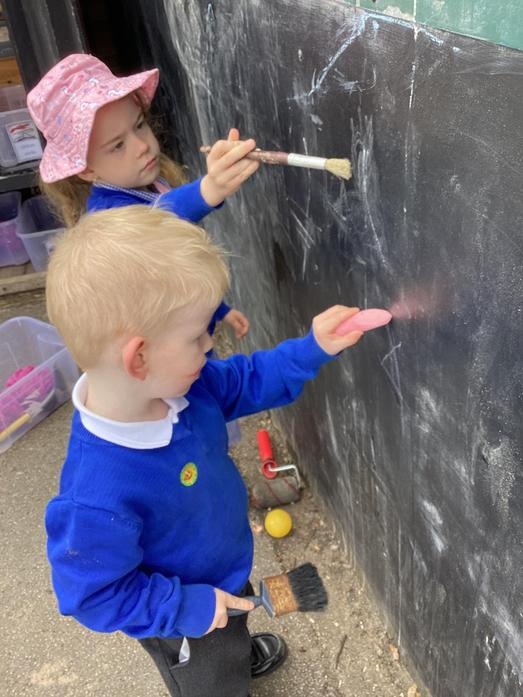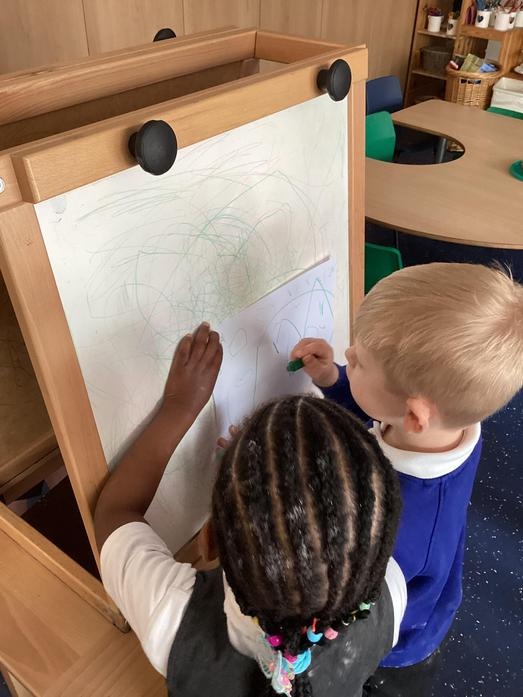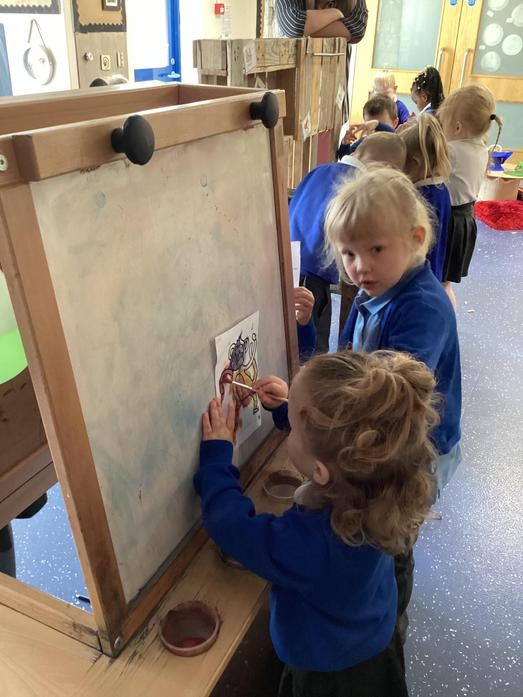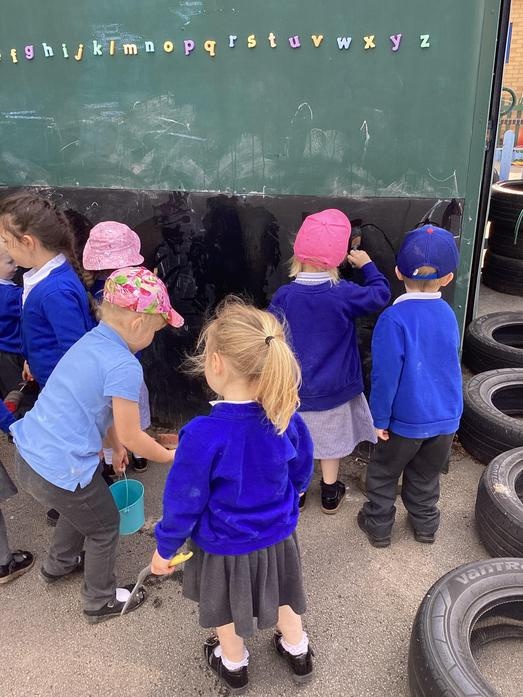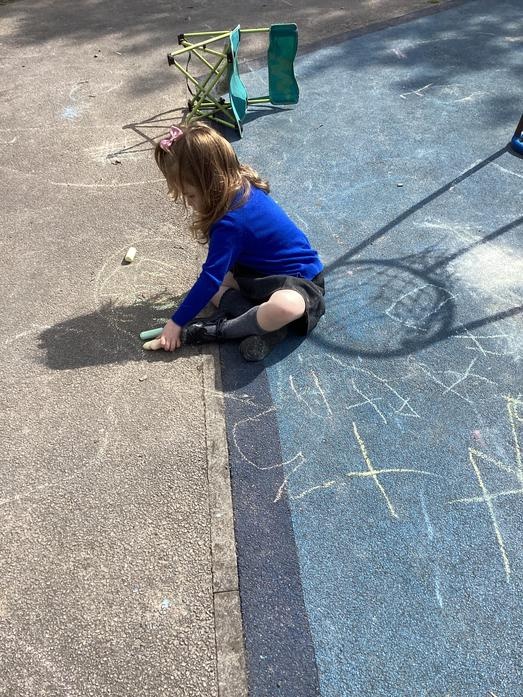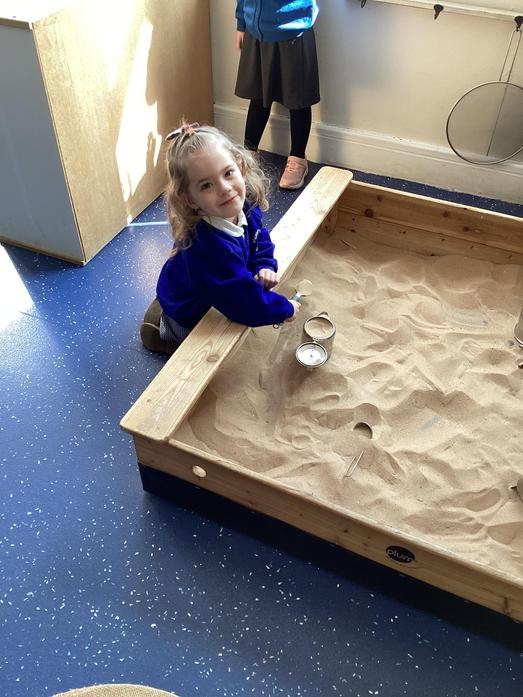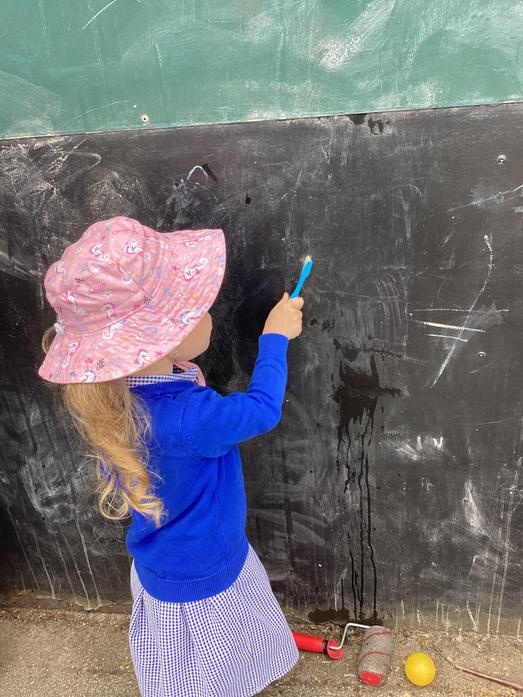Writing
Writing at Healdswood
“We know that linguistically children can’t write sentences unless they can say them and they can’t say a sentence unless they hear them a lot,” (Pie Corbett)
At Healdswood Infant and Nursery School, our intent is that children will:
- be excited and motivated to read, write and express themselves; are explicitly taught vocabulary so they have the knowledge and words to be highly effective communicators
- be provided with a rich and imaginative curriculum;
- be exposed to a wide-variety of high-quality literature;
- build and internalise a well-known story that supports them in developing their imagination, vocabulary, writing techniques and confidence;
- be taught phonics, spelling and grammar that is contextualised within the art of writing;
- be exposed to high-quality shared and guided reading and writing, modelling the skills and techniques of being a confident reader and writer;
We follow Talk for Writing (TFW) as a whole school, cumulative and systematic process for the teaching of English. At the heart of Talk for Writing is the principle that schools should increase the amount children read and are read to; a principle that we passionately believe in. Through their time at Healdswood children gradually internalise well-known story texts, supplemented by picture books, novels, poems and non-fiction books. Gradually, this library of language equips the children with the words they need to express themselves.
Talk for Writing is the exploration, through talk, of the thinking and creative processes involved in being a writer. At Healdswood we underpin our English curriculum through our established core reading spine of quality fiction, poetry and non-fiction that all children experience. The phases of the Talk for Writing process, immerse and enable children to imitate orally the language and grammar in the context of a model text, before reading and applying independently. Our Talk 4 Writing process is coherently sequenced and chunked into three core stages (the three Is) to ensure that · learning is progressive: The internalisation of vocabulary, language and sentence patterns and whole texts in the imitation stage serves as a scaffold for writing in the imitation phase. Children develop their vocabulary and knowledge of language patterns to enable them to talk knowledgeably and articulately. Children rehearse those language patterns and sentences, for children can only write what they have knowledge about and can say. The internalisation of patterns through oral rehearsal of texts is an important scaffold to ensure that children talk in a way that they are expected to write. Detailed text maps provide a scaffold for children to follow whilst perfecting oral rehearsal focussing on grammar structures..
Grammar is taught explicitly through Talk for Writing, as research shows that knowledge is internalised when taught within a familiar context. The approach moves from dependence towards independence, with the teacher as an expert model of the writing process in daily shared writing sessions and there are regular opportunities for children’s writing to be celebrated.
At the end of each T4W 'unit' - once all of the teaching, modelling and internalisation of knowledge has taken place - there is an opportunity for children to be authors of an independent piece of writing. In Early Years, writing opportunities are provided to the children to encourage them to write captions, labels, familiar phrases or sections of a story using the scaffold of the text, and are also provided with opportunities for child initiated and role-play writing. At Healdswood we believe that speaking and listening form the foundations of all learning in our curriculum. We create and facilitate opportunities for speaking and listening, discussion and talk around learning and encourage pupils to be inquisitive.
Talk for Writing is an inclusive approach to the teaching of writing and allows all children to access the writing curriculum. The actions and focus on oral rehearsal before writing means that all children are able to access aspirational and challenging texts. The success that our SEND children have in writing is testament to this approach and the quality teaching of writing.
The impact of the approach we use to teach writing is that children at Healdswood Infant and Nursery School see themselves as successful authors. They are able to speak articulately using the vocabulary they have learnt and this impacts the vocabulary choices used in their writing. Through the implementation of T4W in our curriculum, our children are developing a passion for writing as evidenced by the children’s engagement and enthusiasm for writing.
Talk 4 Writing
Talk for Writing was developed by the author Pie Corbett. It has four phases (Invention, Imitation, Innovation and Independent Application), that all support the children to retell stories and create their own story using different styles and structures. Children explore high quality texts (stories), and draw upon their previous knowledge and skills to create their own pieces of writing. The teacher models the writing process during daily shared writing sessions and there are regular opportunities for children’s writing and ideas to be shared and displayed.
The end goal of the teaching of any writing should be to develop children into thriving independent writers, and so at the end of each ‘unit/block’ – once all of the teaching, modelling, skills and knowledge have taken place – there is an opportunity for children to produce a final, independent piece of work.
We provide a wide variety of purposes for writing and, in the Early Years, provide many opportunities for child-initiated and role-play writing.
Have a look at some of our amazing writing...
Early Writing
Opportunities for mark making
Opportunities for children to develop their gross and fine motor skills underpin our curriculum, environment and interactions at Healdswood. We stray away from ‘only writing at tables’ and build it into our continuous provision. Children are supported both indoor and outdoor to develop the muscles needed for writing as well as the opportunity to 'have a go' at mark making through different medium. The photos below show our Nursery children taking part in a variety of mark making activities throughout the indoor and outdoor provision.

